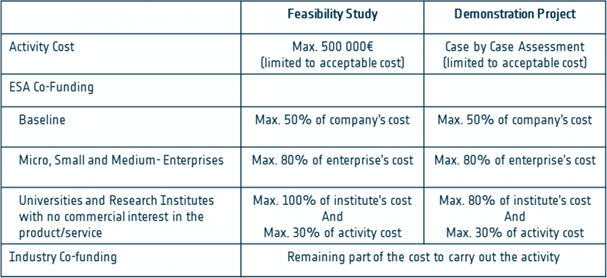Funding opportunity
Construction progress monitoring involves tracking and assessing the development of a construction project over time to ensure that it aligns with planned schedules, quality standards, and budgetary constraints. It uses various tools and techniques, including on-site inspections, drone surveys, and digital solutions such as Building Information Modelling (BIM) and remote sensing technologies, to capture real-time data and provide stakeholders with a clear overview of the project's status. This helps identify delays, issues, and risks early, facilitating timely interventions and ensuring efficient resource allocation and project completion.
However, current methods fall short in providing sufficient visibility across large, disparate sites. Drones can be limited in coverage, typically require manual operation, and infrequent use leaves visibility gaps. Site visits add cost and time, and data retrieved can be inconsistent across visits. Satellite technology and data, combined with advanced analytical techniques, have the capability to offer better visibility, reduced costs, and broader coverage, especially for multinational projects.
The global construction market is expected to reach USD 19.52 trillion in 2027 at a compound annual growth rate (CAGR) of 6 per cent, according to the Business Research Company. The construction site monitoring market is estimated at a fraction of this at USD 2.11 Billion in 2024 and expected to reach USD 3.85 Billion by 2028. Growth is expected to be driven by demand for sophisticated monitoring solutions that enhance efficiency and productivity on construction sites, alongside a need for monitoring with higher temporal resolution. This is in view of enabling proactive decision-making and reducing risks associated with on-site activities. As such, the opportunity for new solutions introducing a step-change to construction monitoring processes will be poised to exploit a large, growing, and global market opportunity.
The main objective of this call for proposals is to assess the feasibility of, and/or demonstrate, high resolution (temporal and spatial) monitoring of construction sites using satellite data and technology, at an affordable price point. The solicited activities will enable improved monitoring of construction sites and earth-moving activities.
Key areas of interest include:
- Progress Monitoring: Tracking project advancement from commencement through completion for comparisons between design, pre-construction and as-built conditions.
- Safety Monitoring: Early hazard identification and mitigation on construction sites.
- Structural Monitoring: Assessment and tracking of the condition of infrastructure over time.
- Documentation and Reporting: Automated extraction of insights from digital resources produced and transacted throughout construction projects, for efficiency, compliance and accountability.
- Environmental Reporting: Systematic observation, measurement and analysis of environmental conditions on and around construction sites to ensure compliance with regulations and positive reputational standing with local communities.
- Logistics and supply chain monitoring: Improved tracking of sourcing, procurement and delivery processes to negate the impact of supply chain difficulties on project implementation and quality.
- Cross-sector applications: Services that consider not only the construction sites but its interactions with nearby infrastructure and ecosystems.
Specific problem statements supplied by ESA partners from the infrastructure sector will be published with this Call for Proposals, stipulating specific use-cases within this broad theme that companies can optionally address.
Value of space
Satellite data and technology is expected to play a critical role in the proposed solutions to this challenge.
Satellite Earth Observation
Satellite Earth observation data can offer extensive coverage, frequent revisit rates, and consistent data quality across construction sites. Very high-resolution optical imagery combined with complementary data can enable tracking of highway works, vegetation information, presence of land equipment, detection of vehicles, and like-for-like comparisons over time. Satellite radar data may support in identification of metallic objects on-site, area occupation, and otherwise, also enabling monitoring under any weather conditions. Earth observation can measure heat signatures, provide topographical measurements, air quality analysis and detect changes in land use.
Satellite Positioning
Remote sensing solutions may benefit from calibration and/or validation through periodic (though less frequent than current) site inspections utilising drones and similar technologies, utilising satellite positioning to geo-/time-stamp information collected. Positioning data derived from equipment on-site is crucial to enabling comprehensive monitoring of activities on construction sites. GNSS receivers are a key component of structural integrity monitoring systems as well.
Satellite Communications
Satellite communications may also support drone operations in remote regions, when used to gather data to calibrate and/or validate remote sensing solutions used for the primary monitoring of construction site progress. Likewise, it may be used to enable IoT-based (Internet of Things) monitoring. More generally, satellite communication is able to provide connectivity for remote sites that lack alternative communications means.
What we look for
We look for promising business ideas addressing topics of relevance or related areas that propose:
- Attractive market opportunities, identified customer needs and customer engagement
- Commercially-viable service concepts
- Technically feasible solutions
- Added value of space data or technology
- Motivated teams with business, technical, and financial expertise
What we offer
We offer funding and support to companies, both for business case assessment and for the development of new, space-based services. Our offer includes:
- Zero-equity funding*
- Technical and commercial guidance
- Access to our network and partners
- ESA brand credibility
*(50-80% depending on SME Status and Member State Approval)
ESA tender information
The initiative is open to the submission of proposals for Feasibility Studies and Demonstration Projects:
- Feasibility Studies - which provide the preparatory framework to identify, analyse and define new potentially sustainable services
- Demonstration Projects - dedicated to the implementation and demonstration of pre-operational services
How to Apply
- Scroll down to the ‘Downloads’ section of this webpage to download the official documents at the opening date. Official documents include an Activity Description (including the scope of the call, procurement approach…), an Annex (including relevant use-cases), and other supporting materials (e.g. webinar slides, if applicable)
- Download the Activity Pitch Questionnaire template and submit your pitch as instructed in the Activity Pitch Questionnaire guidelines through the online form (Select ‘Thematic Call (under 1-10494)’ followed by ‘Space for Construction Monitoring’ in the ‘Call’ and ‘Activity’ fields on the first page of the APQ).
- ESA will evaluate your pitch. Teams whose pitches are positively evaluated will be invited to prepare an Outline Proposal and then a Full Proposal. Teams must apply for a Letter of Authorisation of Funding from their respective National Delegation before submitting a Full Proposal. Contact details of all National Delegates can be found here: National Delegation(s).
Webinar
Date: 12th December 10am GMT
Speaker: Juan Beneytez Salvadores - Innovation & Automation Manager at Ferrovial
Authorisation of funding
This opportunity is open to companies that intend to develop space-enabled services and products related, but not restricted, to the topics of relevance outlined above. To be eligible for funding, your team must be based in one of the following countries: Austria, Belgium, Czech Republic, Denmark, Estonia, Finland, France, Germany, Hungary, Ireland, Italy, Lithuania, Luxembourg, the Netherlands, Norway, Poland, Portugal, Romania, Slovenia, Sweden, Switzerland and United Kingdom. Teams can involve non-European entities, but their contribution to the activity cannot be funded by ESA.
Authorisation of Funding letters from the corresponding National Delegations are required as part of the application.




